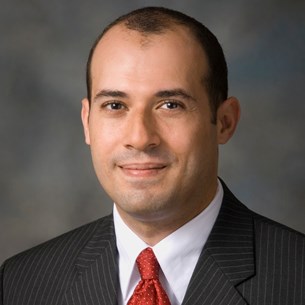Meeting
2017 ASCO Annual Meeting

GI Medical Oncology Department, The University of Texas MD Anderson Cancer Center, Houston, TX
Ahmed Omar Kaseb , Reham Abdel-Wahab , Ravi Murthy , Manal Hassan , Kanwal Pratap Singh Raghav , Lianchun Xiao , Jeffrey Morris , Rony Avritscher , Bruno C. Odisio , Chimela Ohaji , Robert A. Wolff , James C. Yao , Armeen Mahvash
Background: Combined use of sorafenib and local therapy for treating unresectable hepatocellular carcinoma (HCC) is not well established. Notably, most common cause of death in HCC is liver failure, therefore we tested the promise of controlling the local tumors even in the setting of advanced/metastatic disease to improve survival. Our study aimed to assess the efficacy and safety of combined use of sorafenib and yttrium-90 resin microspheres (Y90 RMS) in unresectable HCC defined as Barcelona Clinic Liver Cancer class C. Methods: Between October 2013 and August 2016 we enrolled 40 advanced stage HCC patients, 38 patients were treated with sorafenib followed (after 4 weeks) with Y90 RMS at MD Anderson Cancer Center. Survival analysis was done to evaluate median overall survival (OS) and progression-free survival (PFS). We used modified Response Evaluation Criteria in Solid Tumors (RECIST) to assess response to treatment and the Common Terminology Criteria for Adverse Events (CTCAE) v4.0 to evaluate the grading of treatment related toxicity. Results: The majority of our patients were males (74%), white (47%), 66% of patients had underlying liver cirrhosis, 26% had vascular invasion, and 26% had extrahepatic disease. The estimated median OS and 95% confidence interval (CI) in months was 18.46 (12.29 – NA) and the estimated PFS was 12.29 months (5.72 – 18.79). Stable disease (SD) was observed in 44.74% of patients, while 28.95% achieved partial response (PR). Grade III-IV adverse events included fatigue (n = 3), hyperbilirubinemia (n = 2), thrombocytopenia (n = 1), proteinuria (n = 1), hyponatremia (n = 1), elevated liver enzymes (n = 4), hypertension (n = 4), diarrhea (n = 1), nausea (n = 1) and vomiting (n = 2). Conclusions: This is the first prospective study to evaluate sorafenib followed by Y90 in HCC. Our study included patients with metastatic HCC and showed that combined use of sorafenib and Y90 was tolerable and was associated with longer OS and PFS compared to previous studies which evaluated sorafenib alone. However, future randomized phase III studies are warranted to assess sorafenib+/-Y90 in metastatc disease setting. Clinical trial information: NCT01900002
Disclaimer
This material on this page is ©2024 American Society of Clinical Oncology, all rights reserved. Licensing available upon request. For more information, please contact licensing@asco.org
2017 ASCO Annual Meeting
Poster Session
Gastrointestinal (Noncolorectal) Cancer
Gastrointestinal Cancer—Gastroesophageal, Pancreatic, and Hepatobiliary
Hepatobiliary Cancer
NCT01900002
J Clin Oncol 35, 2017 (suppl; abstr 4083)
10.1200/JCO.2017.35.15_suppl.4083
4083
75
Abstract Disclosures
2023 ASCO Gastrointestinal Cancers Symposium
First Author: Mingyue Cai
2024 ASCO Gastrointestinal Cancers Symposium
First Author: Lorenza Rimassa
2022 ASCO Annual Meeting
First Author: Jiabei Wang
2018 ASCO Annual Meeting
First Author: Imane H. El Dika